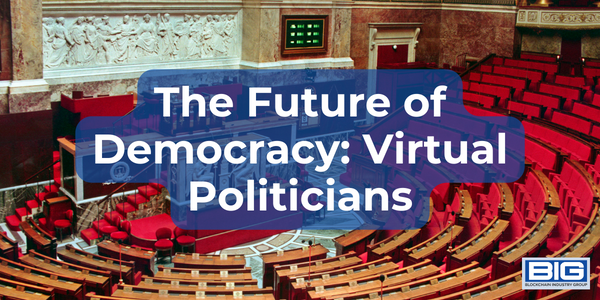
Politics, a field that has been dominated by human politicians for centuries, is undergoing a radical transformation with the advent of new technologies such as artificial intelligence (AI), virtual reality (VR), and the metaverse. In this article, we will examine the ways in which virtual politicians – politicians who are not subject to emotions, greed, or other base human desires – could overtake traditional politicians and become more desirable to voting citizens.
The Emergence of Virtual Politicians
The metaverse is a digital world that provides a virtual space where users can interact and engage in a wide range of activities. With the rise of VR and AI, virtual politicians are now possible, opening up the possibility of creating politicians who are not only free from human biases, but also from other forms of corruption and greed. These virtual politicians can be programmed to act in the best interest of their constituents and can be held accountable for their actions through the use of smart contracts and blockchain technology.
Advantages of Virtual Politicians
Over Real Politicians One of the key advantages of virtual politicians is their transparency. Unlike human politicians, virtual politicians are not subject to emotions, greed, or other base human desires that can often cloud their judgment and influence their decision-making. Instead, they operate based on a set of principles that are programmed into their code and are designed to prioritize the needs and interests of the citizens they represent.
Another advantage of virtual politicians is their accountability. Virtual politicians are held accountable through the use of smart contracts and blockchain technology, which provide a transparent and tamper-proof record of their actions. This accountability allows citizens to have confidence in their virtual representatives and trust that they are acting in their best interests.
Virtual politicians are also more accessible to the citizens they represent. They are not limited by geography or time constraints and can interact with citizens 24/7. Furthermore, virtual politicians can reach a wider audience through their virtual presence, allowing them to connect with and engage with more people in a more meaningful way.
Finally, virtual politicians can provide more efficient and effective representation. They are able to analyze large amounts of data and provide insights and solutions to problems in real-time. This can lead to more informed and effective decision-making and can result in faster and more effective resolution of issues.
The Future of Democracy
The rise of virtual politicians has the potential to revolutionize the field of politics and change the way we think about democracy. By providing citizens with representatives who are free from human biases and other forms of corruption, virtual politicians have the potential to restore trust in the political system and provide more effective representation for citizens.
Top 20 Benefits to Living in a Simulation
—
Top 3 Personality Strengths of Kirk, Spock and McCoy
—
Will the Last One Out Please Turn Off the Lights?
However, it is important to recognize that virtual politicians are not a perfect solution and that there are potential challenges that need to be addressed. For example, virtual politicians can be susceptible to hacking and manipulation, which could undermine their transparency and accountability. Additionally, there are concerns about the potential for virtual politicians to be biased towards corporations and special interests, as they may be programmed with these interests in mind.
Conclusion
In conclusion, virtual politicians have the potential to revolutionize the field of politics and provide a more effective and accountable form of representation for citizens. However, it is important to address the potential challenges and ensure that virtual politicians are held accountable and operate in the best interests of citizens. As technology continues to advance and the metaverse becomes a more integral part of our lives, virtual politicians will become an increasingly important part of the political landscape, and it is up to us to ensure that they serve the needs and interests of the citizens they represent.



